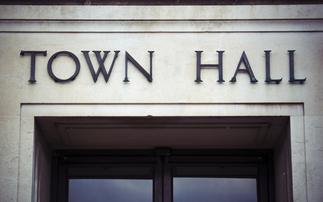Asian powerhouse to submit higher reductions than expected today as contribution to global emissions reduction deal
South Korea has confirmed plans to cut emissions 37 per cent against a business as usual baseline, up from the 15 to 30 per cent reduction it had initially proposed.
The target is set to be submitted to the UN today, officially confirming the country's Intended Nationally Determined Contribution (INDC) that it is prepared to sign up to as part of a new global emissions reduction deal that is set to be agreed at the Paris conference in December.
The country's emissions are set to reach 850.6 million tonnes of CO2 equivalent by 2030 based on business as usual levels, according to a government statement.
Earlier this month, Seoul outlined four different emissions targets ranging from 14.7 per cent to 31.3 per cent cuts, but insisted the final decision would be made after a public hearing.
Following the hearing, the government has opted to strengthen the target.
"We decided to raise the target from the reduction scenarios, considering our leadership in climate changes such inviting GCF (Green Climate Fund), our global responsibility, and opportunity to develop new energy business and innovate manufacturing sectors," the government said in a statement.
South Korea is among the world's top 10 emitters, but due to its emerging economy status was not subjected to bidning emissions targets under the previous Kyoto Protocol.
The country has been working to tackle emissions, launching the world's second largest carbon trading scheme and pioneering a major green stimulus package in the wake of the 2008 financial crisis.
The country also has a key role to play at the UN talks as the host nation for the UN-backed GCF, which aims to mobilise finance to help poorer countries tackle climate change.
So far, 11 countries and the EU have formally submitted climate actionn plans to the UN under the INDC regime: Switzerland, Norway, Mexico, the US, Russia, Gabon, Liechtenstein, Andorra, Canada, Morocco, and Ethiopia.
The latest developments came as the UN's Secretary General Ban Ki-moon warned the talks were still progressing too slowly.
"The negotiation pace is too slow, far too slow," he told reporters. "It is moving at a snail's pace."
The UN had hoped to see the bulk of countries submit their INDCs during the first half of this year, but while a number of nations, including China, are expected to publish their plans in the coming weeks there are growing fears some key players may not submit their plans until just before the Paris Summit.







